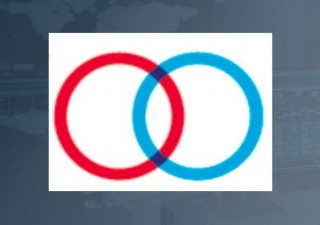Alibaba’s return to the Office of the United States Trade Representative’s “notorious markets” list last December has sparked a flurry of activity from the Chinese e-commerce giant in a bid to rid its sites of fakes.
Its latest effort features a new alliance with about 20 international brands including Louis Vuitton, Samsung and Mars that aims to leverage big data and the latest in anti-counterfeiting technology to crack down pirated goods.
According to the company, the Alibaba Big Data Counterfeiting Alliance was created to increase cooperation and transparency among all stakeholders, while also providing brands and rights holders with a more formal channel for information sharing.
Alibaba said that its anti-counterfeiting technologies, which employs algorithms, artificial intelligence and machine learning, scan as many as 10 million product listings a day, and that the company has removed more than 380 million listings in 12 months. The members of the alliance will also share their own anti-counterfeiting expertise and data to bolster the efforts.
Last year using its own data engine, Alibaba helped the Chinese authorities to bust 417 production lines, arrested 332 suspects and seized fake goods value at Rmb1.43 billion (US$207.2 million) in a joint operation named Operation Cloud Sword.
“The most powerful weapon against counterfeiting today is data and analytics, and the only way we can win this war is to unite,” said Alibaba’s chief platform officer, Jessie Zheng, in a statement released on January 16. “With our robust data capabilities, we are confident the alliance will accelerate the digital transformation in our global fight against counterfeits.”
This announcement of the anticounterfeiting alliance came just two weeks after it unprecedentedly sued two vendors using the company’s Taobao platform to sell fake Swarovski watches. The lawsuit marks the first time a Chinese e-commerce site takes a counterfeit seller to court.
Seeking Rmb1.4 million (US$201,000) for “violation of contract and goodwill” in the Shenzhen Longgang People’s District Court, Alibaba has warned that more legal actions against rogue sellers are in the wings.
“Selling counterfeits not only violates our service agreement, it also infringes on the intellectual property rights of the brand owner, puts inferior products in the hands of consumers and ruins the hard-earned trust and reputation Alibaba has with our customers,” said Zheng, adding that she hopes jail sentences and crippling fines will deter fraudulent selling activities on the platforms.
According to Alibaba, the sellers were identified using a combination of covert purchases and big data. With the information provided by the company, Shenzhen police seized 125 fake Swarovski watches and two counterfeit Swarovski official seals, with an estimated total value of Rmb200 million (US$28.7 million).
The Austrian crystal brand also cooperated on the cases and examined the quality, workmanship and packaging of samples purchased on Taobao to confirm the watches were fake.
The latest series of initiatives launched by Alibaba is a response to the USTR’s decision to restore its Taobao shopping platform to the agency’s “notorious markets” list after removing it four years ago.
The US trade watchdog annually releases the list as a part of its Special 301 Report to highlight virtual and physical markets outside of the country where large scale copyright infringement takes place.
“While recent steps set positive expectations for the future, current levels of reported counterfeiting and piracy are unacceptably high,” the USTR said in a report released last December. “Longstanding obstacles to understanding and utilising basic IP enforcement procedures continue unabated.”
Alibaba said it was disappointed in the decision and questioned if it was influenced by President-elect Donald Trump’s critical trade stance on China. (The statement came prior to prior to Trump’s January 20 inauguration.)
“Our results speak for themselves,” the group’s president Michael Evans said in a statement. “Unfortunately, the USTR’s decision leads us to question whether the USTR acted based on the actual facts or was influenced by the current political climate.”
The company said that it removed more than double the number of infringing product listings last year than in 2015. “It is therefore unreasonable for the USTR to have concluded that Alibaba is less effective in anti-counterfeiting than when it reviewed our efforts in 2015 and when it removed us from its list four years ago,” Evans added.
Meanwhile, the Chinese government has published a draft e-commerce law for public comments. Lyu Zushan, deputy director with the parliament’s financial economic affairs committee, said that the draft law will facilitate e-commerce growth, help maintain market order and protect consumer rights, according to state-run media Xinhua.
The draft contains provisions which require e-commerce platform operators to establish rules and take necessary measures for the protection of intellectual property rights.
It also provides procedures for dealing with IP infringement complaints. If a platform operator fails to take actions accordingly, it could be fined and have its business licence revoked.







